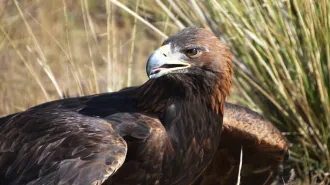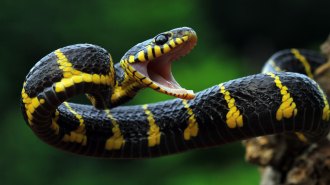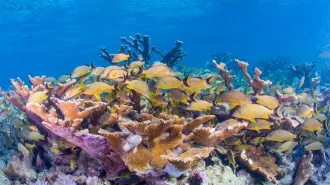Life
How hummingbirds really work, the thermostat preferences of leeches, and cattle-sparing disease testing in this week’s news
Hummingbird tongue is a trap
Shaking up nearly two centuries of thinking about hummingbird tongues, new high-speed video shows that nectar actually does not fill a pair of grooves at the tip the same way any liquid rises through tiny capillaries. Instead, the tongue’s grooves change shape as the tongue pulls out of the nectar and traps the sip. Both living birds and tongues salvaged from carcasses showed the same groove changes, suggesting birds don’t need to exert energy with this efficient system. Rethinking hummingbird tongues could affect studies of foraging and the evolution of nectar feeding, University of Connecticut researchers report online May 2 in the Proceedings of the National Academy of Sciences. —Susan Milius
Rethinking foot-and-mouth
The drastic culling of animals without symptoms of the dreaded foot-and-mouth disease might become a thing of the past if scientists can develop ways to test large numbers of cattle quickly, say researchers in the United Kingdom. Their experiments show that cattle were unlikely to transmit the disease until half a day after showing symptoms. Also, cattle on average could transmit the virus for only 1.7 days, a shorter period than pathologists routinely expect, the team reports in the May 6 Science. That short window raises hopes that refining tests for foot-and-mouth in large numbers of cattle could reduce the need for controversial and expensive measures. —Susan Milius
Leeches get warmer, then colder
Leeches like it hot ‘n’ cold, changing up their temperatures before and after eating, researchers from Wellesley College in Massachusetts report online May 3 in Biology Letters. Medicinal leeches seek out hot hiding spots after gorging on blood. Between meals — and the critters can go months without eating — leeches stick to the cold. Hot habitats may give these slimy creatures more energy for digesting and excreting their bloat-inducing feasts. Cold water, on the other hand, may be ideal for saving energy, researchers say. —Daniel Strain







